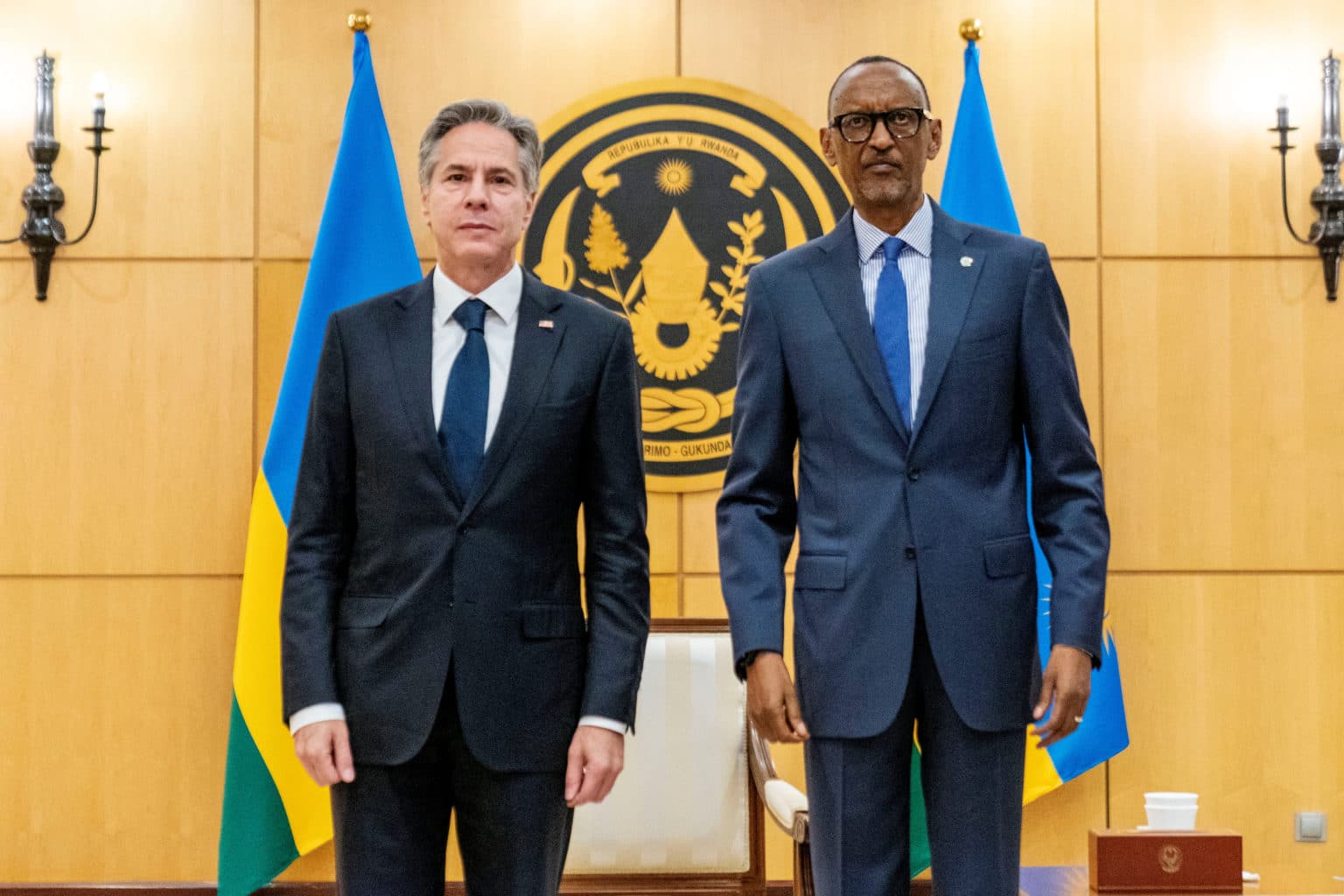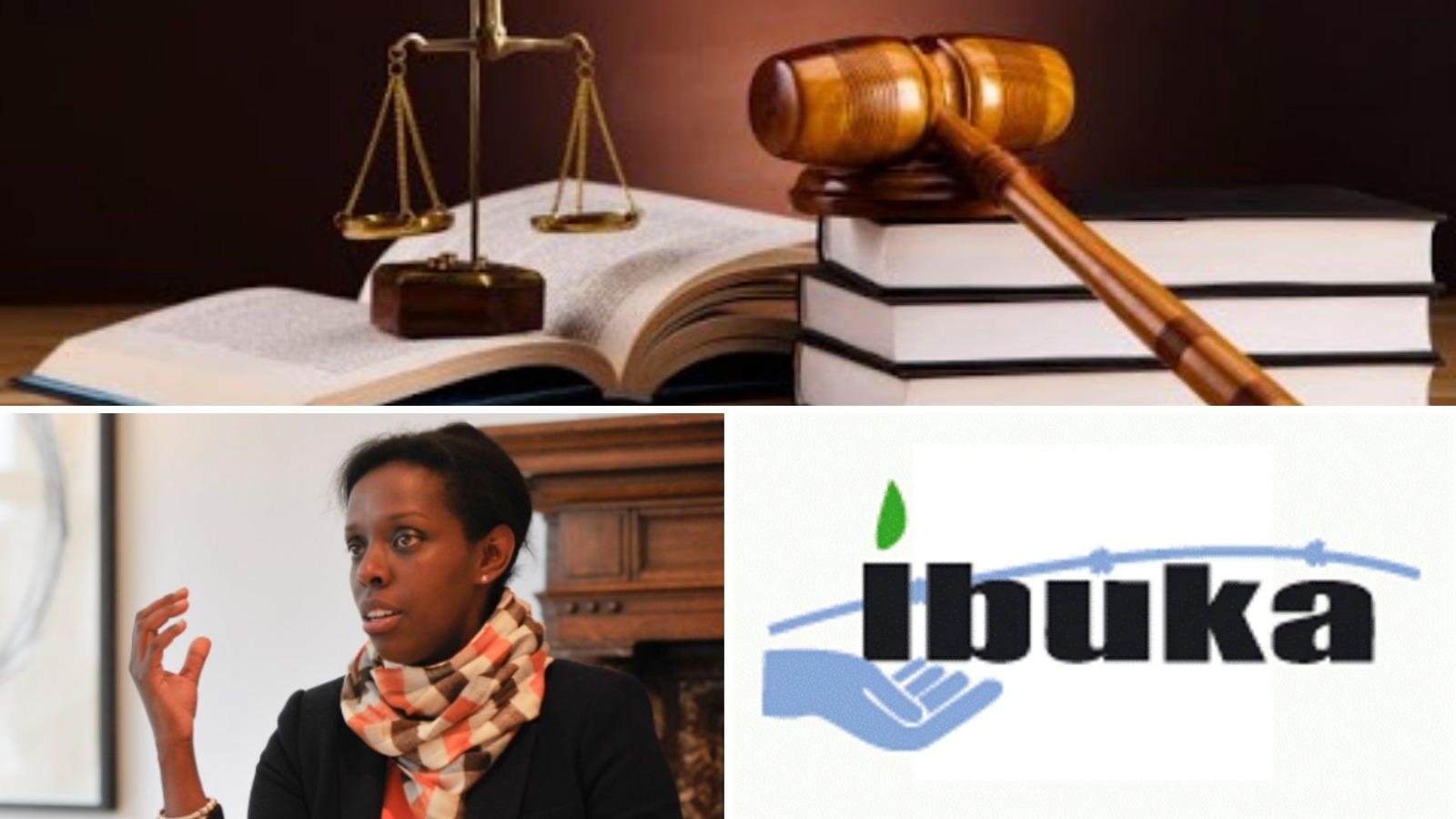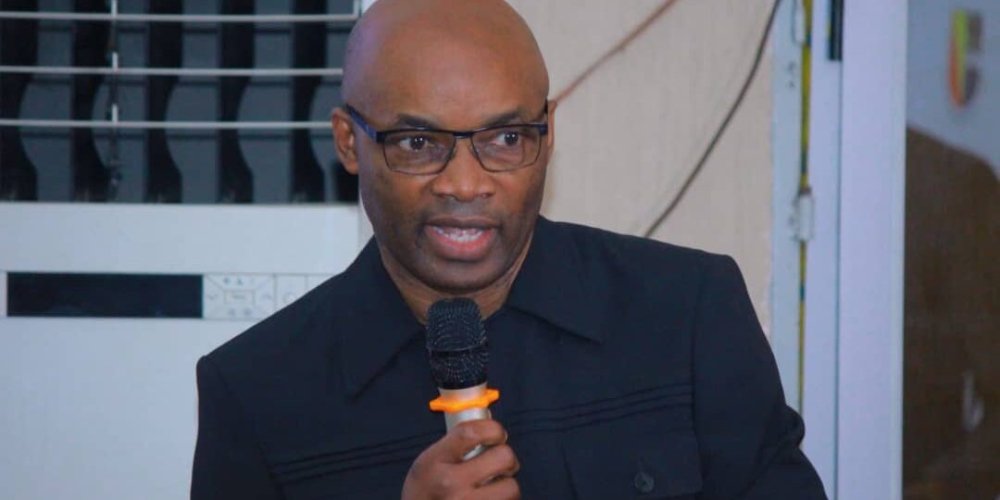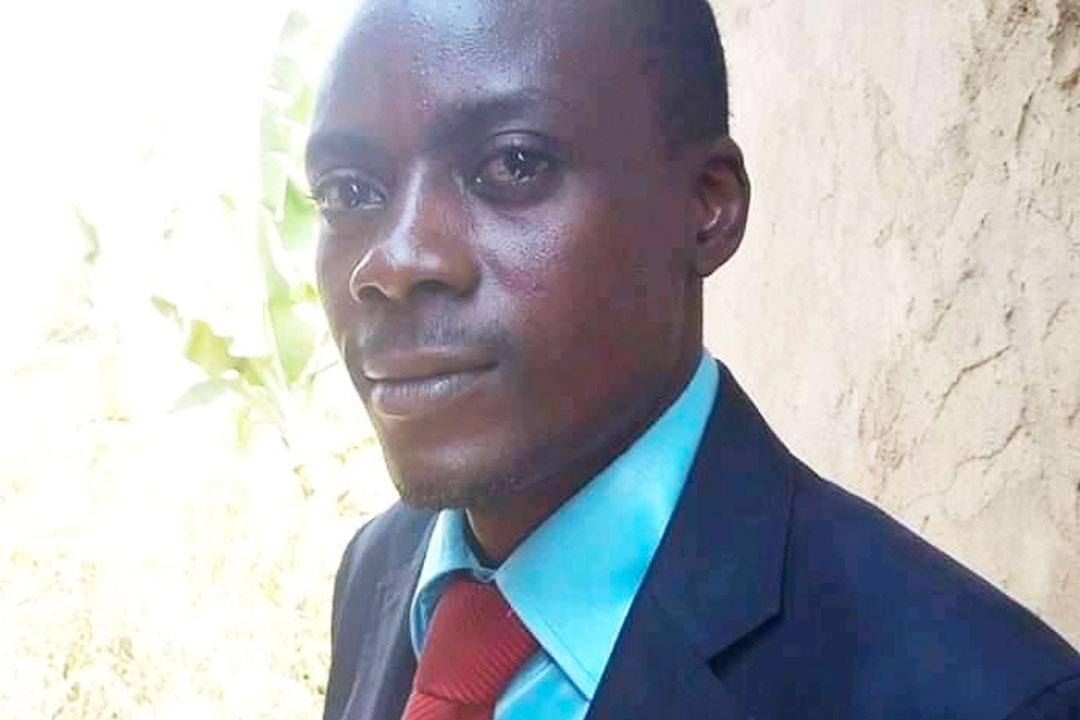Rwanda under Paul Kagame is the typical authoritarian regime that the African people no longer want. Paul Kagame is a head of state who came to power by force of arms almost 30 years ago, who has won three presidential elections with Soviet-style scores and who, by his own admission, “plans to run for another 20 years.“[i] However his human rights record is abysmal. Rwanda is the archetype of modern autocracy. In addition to being a head of a state that restricts all fundamental freedoms for the Rwandan population, he is the main cause of insecurity and destabilization in the East of the Democratic Republic of Congo but also in the entire African Great Lakes region. At a time when democracy is under threat around the world, Paul Kagame’s profile is not that of an ally to the United States. On the contrary, it is that of a threat to the development of democracy and peace in Africa.
For 30 years, reports from international human rights organizations condemning the Rwandan regime and its endless list of crimes have been piling up. The Mapping Report, which lists all the crimes committed during the period 1993-2003 in eastern Democratic Republic of Congo [DRC], is still gathering dust in the drawers of the United Nations in New York. Some of these crimes attributed to Paul Kagame’s Rwandan Patriotic Front (and its allies), which are recounted in detail in the historic Mapping Report, produced by senior UN experts, “reveal a number of inculpatory elements that, if proven before a competent court, could be characterized as crimes of genocide“[ii].
Impunity has reinforced repression
With this sense of impunity, the Rwandan regime knows fewer and fewer limits when it comes to muzzling the political opposition, crushing civil society or silencing the independent media. The case of real-life hero Paul Rusesabagina, who inspired the film Hotel Rwanda, is particularly significant. This US resident who became a critic of the Rwandan regime many years ago was kidnapped from San Antonio, Texas via Dubai, brought to Rwanda by force, tortured, put through a Stalinist trial and is now serving 25 years in a Kigali prison. Rwanda is one of the most transnational repressive countries in the world. According to Freedom House’s 2021 report, “Rwandan transnational repression is exceptionally broad in terms of tactics, targets, and geographic scope [iii]
Rwanda has never really been sanctioned because the international community and successive US governments have relied on Rwanda for two things: the participation of Rwandan troops in peacekeeping missions and Rwanda as an outlet for certain Congolese raw materials.
Rwandan’s army, the engine of Kagame diplomacy
Since the early 2000s, Paul Kagame has used a significant portion of the development aid Rwanda received for post-1994 reconstruction to develop the country’s military. Rwanda has made its military the engine of its diplomacy[iv]. As the fourth largest contributor to UN peacekeeping forces and the first in terms of ratio per population[v], Rwanda’s voluntarism in terms of security pleases Washington. Rwanda has succeeded in building a significant influence within the international institution and US administrations, notably and above all thanks to its large contingents within UN peacekeeping operations. The United States, very receptive to this, has long made Kagame its protégé. However, this voluntarism is not disinterested. In 2022 the United Nations will pay Rwanda 171 million dollars[vi] in reimbursement for the costs of peacekeeping operations in various countries.
This financial manna and this experience have allowed President Paul Kagame to build an army that is now considered one of the most professional, well-trained and equipped on the African continent.
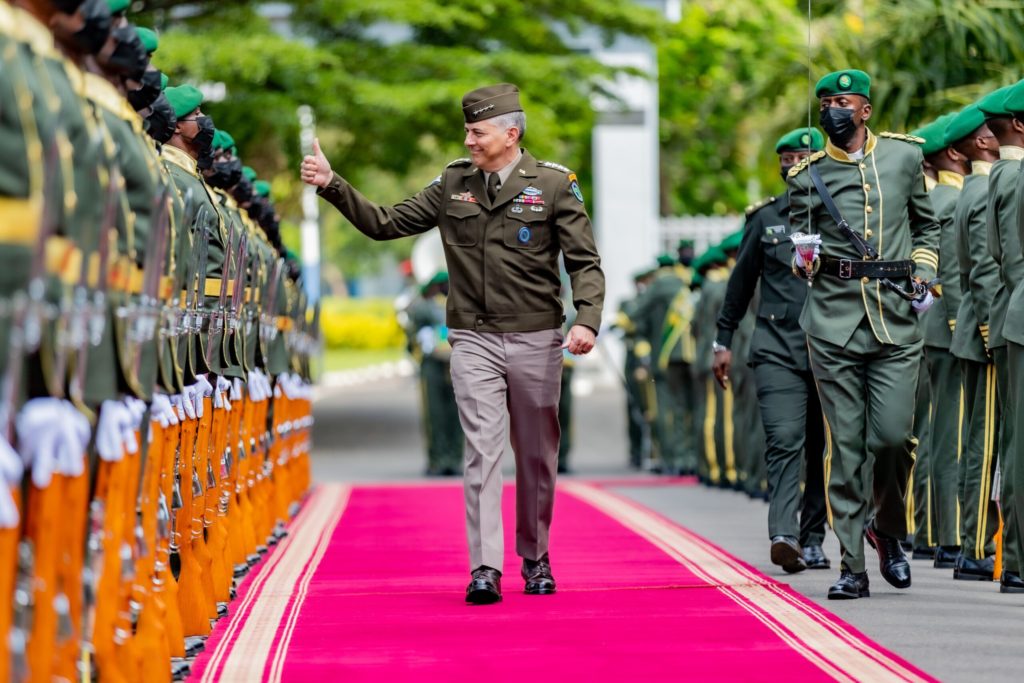
The good reputation enjoyed by the Rwandan army has gradually led Kigali to evolve its model from multilateral security contributions to bilateral security collaboration. This is the form that Rwandan military engagement has taken in the Central African Republic, Mozambique and Benin. The Rwandan presence in the CAR has allowed France to disengage military from this country, which is considered part of its own backyard in Africa, using Rwanda as a proxy. The same situation exists in Mozambique, where Rwanda is officially deployed to counter an insurgency by militants linked to the Islamic State. In fact, Rwanda is supported and partly financed by France to protect the gas installations of its supermajor TotalEnergies.[vii]
This international dependence on Rwandan troops places Paul Kagame in a position of strength. Whenever the international community is critical of the Rwandan regime’s crimes, the latter threatens to withdraw its contribution to the UN forces.
Kagame, the “kingmaker” in DRC
The other argument that justifies the impunity of Paul Kagame’s Rwanda is his ability to influence the DRC because “he is the head of state of the only reliable and stable state in the region”. This statement is partly true, but it is explained by the fact that Kagame maintains insecurity inside the borders of his Congolese neighbor by financing and training armed groups, infiltrating the Congolese armed forces and infiltrating political institutions. In the absence of a reliable Congolese state, the international community turns to Kagame because of his ability to influence the DRC
In addition to his influence on the Congolese economy, Kagame has several connections within the army and the intelligence services. Thanks to the malicious system of mixing and mingling, a large number of generals from the AFDL, RCD-Goma or CNDP, all rebel groups created and supported by Kigali, are in the highest positions in the Congolese army and security services.
According to Martin Fayulu, unsuccessful candidate in the 2019 presidential election, “Kagame and Kabila put Tshisekedi in the presidential seat because they wanted to prevent Rwanda from losing access to the east of the country“. Many observers were surprised by the numerous trips made by the Kabila regime’s senior officials to Kigali before the presidential elections and during the post-election crisis. In January 2019, Paul Kagame, then Chairperson of the African Union (AU), offered, at the request of a group of African heads of state, to act as moderator between the parties. According to Patrick Mbeko, a Congolese geopolitologist and specialist in the Great Lakes region: “Paul Kagame quickly realized that it was in his interest to have a secure and docile ally in the DRC after Kabila left. Paul Kagame secretly got Joseph Kabila to hand over power to Felix Tshisekedi, who came third in the presidential election, behind Emmanuel Shadary and Martin Fayulu, who would have likely won the election.” If this accusation proves to be true, it would demonstrate the influence of Paul Kagame on the DRC’s destiny.
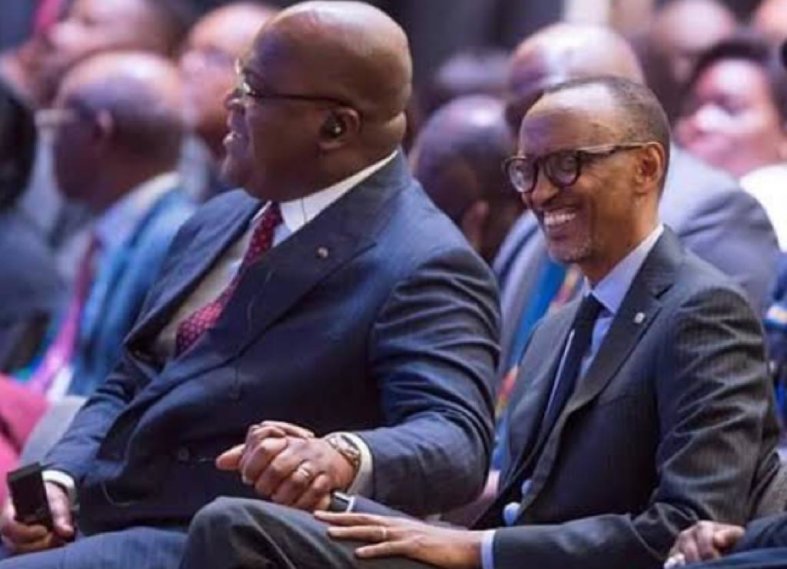
Congolese minerals finance Rwandan regime and give it international influence
Paul Kagame has established himself as the gateway to Congolese minerals. These minerals are essential to certain key sectors such as the Coltan which is key to the technology industry.
Rwanda’s mining sector, with revenues officially estimated at US$516 million in 2021[viii], is the second largest export sector in the national economy.
According to a report by the U.N. Group of Experts on the DRC[ix], submitted to the U.N. Security Council in June 2021, gold and coltan are smuggled from the DRC to Rwanda, where taxes are much lower. Coltan is often hidden in pirogues and other boats on Lake Kivu, which straddles the border between the two countries, or hidden in secret compartments in trucks.
According to the American mining company Bay View, which has been active in the mining sector in Rwanda for a long time, “more than 50 percent of all minerals exported from Rwanda come from the DRC, and more than 90 percent of coltan exported from Rwanda comes from the DRC”[x].
Bay View noted that Rwanda discloses only the amount of minerals the country exports, not the amount it produces. This allows Rwanda to pretend the smuggled DRC minerals are actually from Rwanda, boosting its economic statistics, the company said.
The company also said Rwanda’s official mineral exports have increased dramatically since 2013, despite its low levels of mining production. “The only way this could be possible is if Rwanda is smuggling minerals from the DRC, tagging them as Rwandan and exporting them to the world as Rwandan.”
In 2021, Rwanda was the second largest source of tantalum ore and concentrate imports to the US far ahead of the DRC.[xi]
According to the Congo Research Group[xii], the development of a major trade route between the DRC and Uganda is considered as a major threat to Rwandan regime economic interests in the DRC. It would explain in part why Rwanda decided to resurrect the M23. In general, Paul Kagame sees the process of democratization and development of the DRC and all its neighboring countries as an existential danger for his dictatorial regime.
Kagame has become a threat to American interests and values
Indeed, since the end of 2021, the M23, a terrorist group active in eastern DRC that was defeated in 2014 by UN forces, has resurfaced. In its latest report[xiii], the UN Group of Experts said it had “solid evidence” that Rwandan soldiers participated in several attacks against Congolese soldiers in North Kivu province, the stronghold of the M23, between November 2021 and July 2022. “The RDF [Rwanda Defence Force], either unilaterally or jointly with M23 fighters, engaged in military operations against Congolese armed groups and FARDC [Forces armées de la RDC] positions“. This is undoubtedly a flagrant and unilateral violation of state sovereignty. By working through a terrorist group unanimously condemned 8 years ago, Rwanda is exacerbating insecurity in this sensitive region and violating many of the principles put in place to ensure peaceful relations between states.
Secretary Blinken announced in his speech on the Biden administration’s strategy for sub-Saharan Africa that the answer to the deep security problem on the African continent “is to work toward more effective and accountable African security forces that respect the rights of people and address the marginalization that often drives people to criminal or extremist groups.”[xiv]
The U.S. Department of Defense has long considered Rwanda a partner in the fight against terrorism in Africa because of the quality of its army. But can Rwanda be a partner in securing certain countries when it is the main protagonist in the insecurity of its neighbors?
In this speech on the U.S. strategy for Sub-Saharan Africa, Secretary Blinken also announced that “the United States will focus on the link between democracy and security” and that “History shows that strong democracies are generally more stable and less prone to conflict“. Paul Kagame’s Rwanda is certainly the best example for this statement. It has been an autocracy for more than 20 years and is constantly accused by its neighbors of destabilization, support for rebel groups and crimes against humanity.
An ally like Rwanda weakens the American discourse and reinforces the feeling among some Africans that there is a double standard when it comes to Rwanda. Indeed, if we follow Secretary Blinken’s presentation, Rwanda cannot be an ideological, political, or even military ally of the United States because the Rwandan regime’s values are simply not the same as the ones the United States advocates.
According to Africa Intelligence, the U.S. administration, which initially believed in President Tshisekedi’s ability to reform the DRC, has been severely disappointed by his record in fighting corruption and reviewing the numerous mining contracts signed by Kabila with the Chinese.
If the DRC had a solid, structured, democratic state with strong institutions, this would be the best way for the United States to counter Chinese influence in the Congolese economy and mining sector. It would also be the best way to guard against growing Russian influence in public opinion and to negate Russian attempts to introduce Wagner into the DRC. To achieve this, it is essential to remove Kagame’s ability to cause harm.
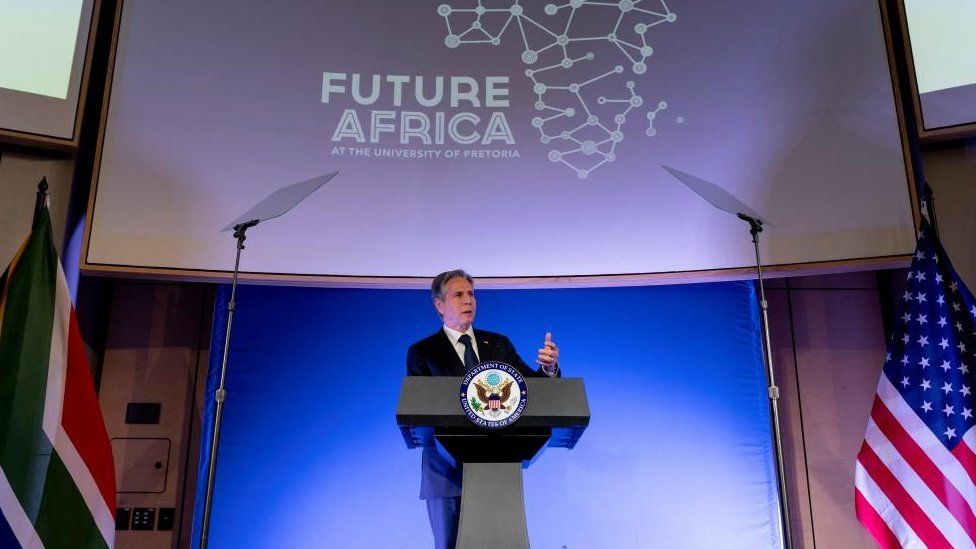
The United States is the only country capable of initiating pressure on Paul Kagame’s Rwanda
Since the beginning of the M23 crisis, the position of the United States, the European states, the UN and the AU has been to support the Nairobi process and the Luanda roadmap. Both initiatives have three objectives: withdrawal of the M23 from conquered positions, dialogue for the disarmament of armed groups, and combat against refractory groups by the countries of the East African Community. Nevertheless, these two processes, however laudable, have no chance of succeeding without greater U.S. involvement. This is for two reasons. First, armed intervention by EAC countries requires financial, military and intelligence support. Second, because the only way to change Rwanda’s position would be through diplomatic pressure and the threat of sanctions, as it was the case in 2014.
According to Nobel Peace Prize winner Dr. Mukwege: “Ten years ago, a simple phone call from President Obama stopped the M23 aggression, and we had peace for ten years.“
Since the middle of the 20th century, the United States has been active in Central Africa. It was a strong supporter of Joseph-Désiré Mobutu before dropping him after the fall of the Soviet Union and making Paul Kagame and Yoweri Musevi the main US allies in the region. Many criticisms can be made of the strategy and actions undertaken by the United States in the Great Lakes region of Africa over the past 50 years. The United States and the international community as a whole have made many mistakes that have led in part to the current deplorable situation.
However the United States is the only country with a strategic vision for the African Great Lakes region. The Americans are the only ones able to put in place a long-term plan that would significantly improve the situation of the people of this region. Other major powers such as China have only a commercial approach to the region. While Russia is not very present despite an image that tends to improve significantly among the Congolese population in recent months.
The other UN Security Council countries, the United Kingdom and France, have become strong allies for Rwanda. But they support Paul Kagame for the wrong reasons.
Rwanda is the only country that has declared itself available to take back unwanted migrants from the United Kingdom, and Emmanuel Macron thinks he can use the Rwandan army as a proxy to bypass the growing dislike of France by Africans.
While both approaches are interesting in theory, in practice, these alliances are counterproductive. Successive British governments that insist on making this migrant transfer deal work are degrading their image in the eyes of the national and international public, which does not understand this despicable deal. As for France, it is now described by the Congolese as the main Western supporter of the M23 because of the romance between President Macron and Kagame. This reinforces France’s negative image in Africa.
A change in U.S. policy toward Paul Kagame would certainly be followed by its Western allies and would not be challenged by China or Russia.
U.S.-Rwandan diplomatic relations are gradually moving in the right direction
In July 2022, in a letter[xv] to U.S. Secretary of State Antony Blinken, the chairman of the U.S. Senate Foreign Relations Committee, Senator Robert Menendez, called for a comprehensive review of U.S. policy towards Rwanda. Menendez said he feared that U.S. support for the Rwandan military while it is deployed to Congo and backing rebels would send “a troubling signal that the U.S. tacitly approves of such actions.” Menendez said he would place a hold on U.S. security assistance to Rwanda in Congress over concerns about the Rwandan government’s human rights record and role in the conflict in the Democratic Republic of Congo. The first tranche of aid to have been blocked concerns several million dollars in support for Rwandan peacekeepers participating in U.N. missions.
During Secretary Blinken’s last trip to Rwanda in August 2022, he was very firm on the issue of human rights especially on the case of Paul Rusesabagina, arbitrarily imprisoned in Rwanda and whose family is tirelessly demanding his return to the United States. There is no doubt that this marks a positive shift in U.S.-Rwandan diplomatic relations.
Since October 2022 and the aggravation of the crisis due to the rise of the M23, the U.S. is the only country to have supported the Congolese government in its condemnation of Rwanda for its support of M23. “We call on state actors to halt their support for armed groups including the Rwandan Defense Forces and the M23 rebels,” said U.S. Representative to the UN Robert Wood. The Department of State’s Bureau of African Affairs then stated that an end to the violence will only be possible if: “M23 ceases its offensive, Rwanda ends its support to the M23, and all sides reject hate speech and follow through on peace & reconciliation commitments.”
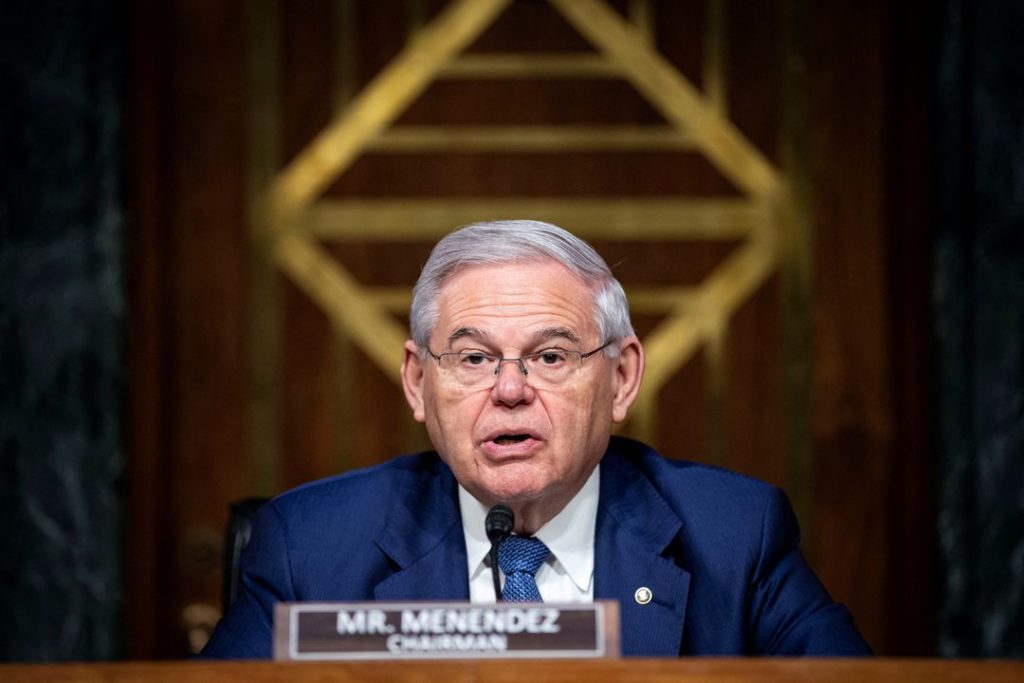
Nevertheless, more needs to be done to match words with deeds. The next step should be in two parts. First, the gradual abandonment of Rwanda as a partner in global peacekeeping missions. The international community and the United States must develop alternatives and other security partnerships in Africa that are more in line with the values they hold. Second, diplomatic and commercial isolation of Rwanda due to its assumed policy of destabilization of the eastern Democratic Republic of Congo. It is necessary to develop sanctions against the Rwandan mining sector; Rwanda must no longer be able to export blood minerals from the DRC.
The United States allocated more than $147 million in foreign assistance to Rwanda in 2021, making it Rwanda’s largest bilateral donor. This inevitably gives the U.S. authorities a right of scrutiny in how the Rwandan government uses this large windfall of money.
The DRC is experiencing a violation of its sovereignty comparable to that of Ukraine
Since February 2022 and the beginning of the war between Russia and Ukraine, the international community and especially the Western leaders have been struggling to raise awareness and mobilize all nations, media and international organizations to condemn Russia and support Ukraine.
Several tens of billions of dollars have been mobilized to provide humanitarian and military support to Ukraine. Several hundred sanctions have been taken by fifty countries. The mobilization of the West is at the level of the suffering of the Ukrainian people.
For several years, the DRC has been experiencing a situation partly similar to that of Ukraine.
In the case of the DRC, there is clearly ill will. Tragedy and distress have reigned in the DRC for nearly 30 years, but the suffering of the people living in eastern DRC is crushed by the silence, impunity and complicit ignorance of the international community in the face of multiple destabilizations initiated by Rwanda.
Africans and especially the Congolese and Rwandan people expect some consistency from the international community.
Kagame’s autocracy versus people’s democracy
There is no doubt that the era we are entering at the geopolitical level is one of an ideological and civilizational battle between democracy and autocracy. If we look at the reaction of the international community to Russia’s actions in Ukraine, it is difficult to understand why countries like Rwanda are exempt from punishment when they are responsible for comparable crimes.
In this period of competition between the West and Russia at the international level and particularly at the African level, it would be wrong to count on dictatorships in the global alliance for the promotion of democracy.
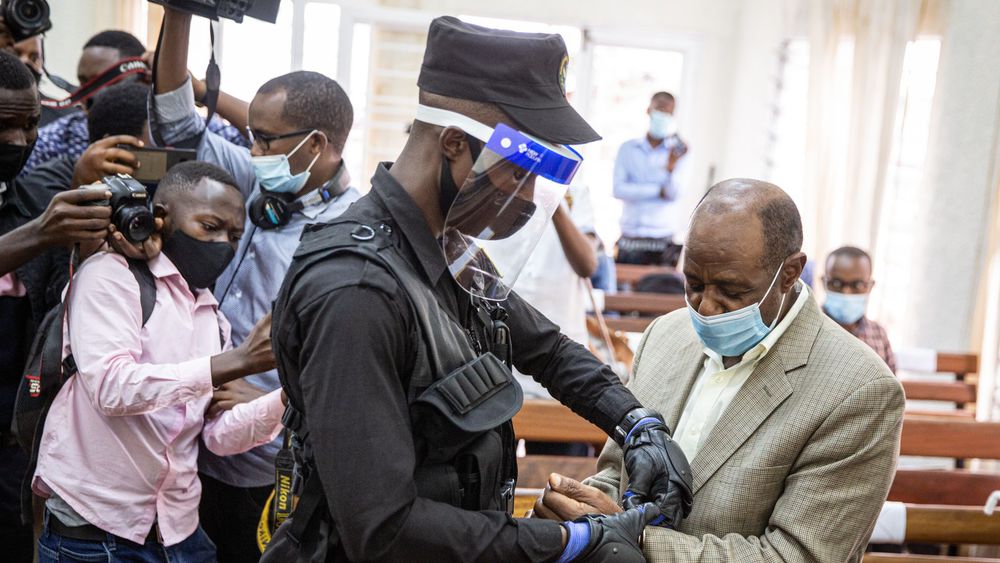
Currently, in the news, we talk a lot about Rwanda’s support to M23. But this is far from being the only argument to criticize the regime of President Paul Kagame. It is just one of many symptoms of how an autocracy works. The fact of thinking that the use of force to satisfy geopolitical ambitions is a means like any other. Besides that, Rwanda has all the other attributes of a true autocracy. It should not be forgotten that, in addition to making the people of the eastern DRC suffer, it subjects the Rwandan population to a terrible yoke and oppression without any comparison in the region.
Kagame wants to be a partner for the West in many areas such as security, mining sector, tourism, finance or health. The United States must understand that Rwanda and Rwandans can continue to be strong and sustainable partners without a regime that oppresses its people. Paul Kagame is neither a precondition nor a sine qua non for continued successful cooperation between US and Rwanda. It is possible to develop a win-win model where the rights of the Rwandan people and the peace of the peoples of the region are assured. Maintaining a partnership with Kagame at all costs for the West, and in particular for the United States, casts doubt on the sincerity and discredits the West’s approach in Africa.
The African public opinion, which has known for the most part more than a century of colonization, dictatorship and injustice, has nevertheless gradually turned away from the West to China and Russia. This is nonsense since what they aspire to most is to finally experiment democracy, justice and human rights. It is certainly not China and Russia that will help develop these concepts in Africa. This rejection of the West is easily explained by the fact that Africans are fed up with western governments’ doubletalk. The United States should be concerned about this situation and think about developing clear and reassuring responses such as distancing themselves from and taking a very firm stand against dictators such as Paul Kagame.
Norman Ishimwe Sinamenye
📧 norman.sinamenye@jamboasbl.com
Twitter: normanishimwe
- [ii]https://www.ohchr.org/sites/default/files/Documents/Countries/CD/DRC_MAPPING_REPORT_FINAL_EN.pdf
- [iv]https://www.defense.gouv.fr/sites/default/files/dgris/Note%2031%20RWANDA%27S%20NEW%20MILITARY%20DIPLOMACY.pdf
- [v] https://peacekeeping.un.org/en/troop-and-police-contributors
- [vi] https://cddmoz.org/wp-content/uploads/2021/11/Is-France-using-development-aid-to-finance-the-intervention-of-Rwandan-troops-in-Mozambique.pdf
- [vii] https://www.jambonews.net/en/actualites/20220826-is-the-rwandan-army-becoming-the-wagner-of-france- and-europe/
- [viii] https://www.newtimes.co.rw/article/201642/news/mining-industry-sees-value-in-growing-local-processing- capacity
- [ix] https://documents-dds-ny.un.org/doc/UNDOC/GEN/N21/113/46/PDF/N2111346.pdf?OpenElement
- [x] https://www.theglobeandmail.com/business/article-how-blood-mineral-traders-in-rwanda-are-helping-fund- congo-rebels-and/
- [xi] https://pubs.usgs.gov/periodicals/mcs2022/mcs2022-tantalum.pdf
- [xii] https://www.congoresearchgroup.org/en/2022/06/14/ugandas-operation-shujaa-in-the-democratic-republic-of- congo-fighting-the-adf-or-securing-economic-interests/
- [xiii] https://publuu.com/flip-book/38774/118568/page/10
- [xv] https://efile.fara.gov/docs/6305-Informational-Materials-20220725-13.pdf

